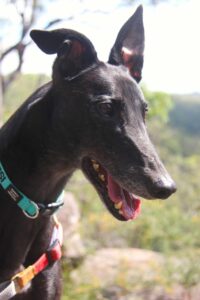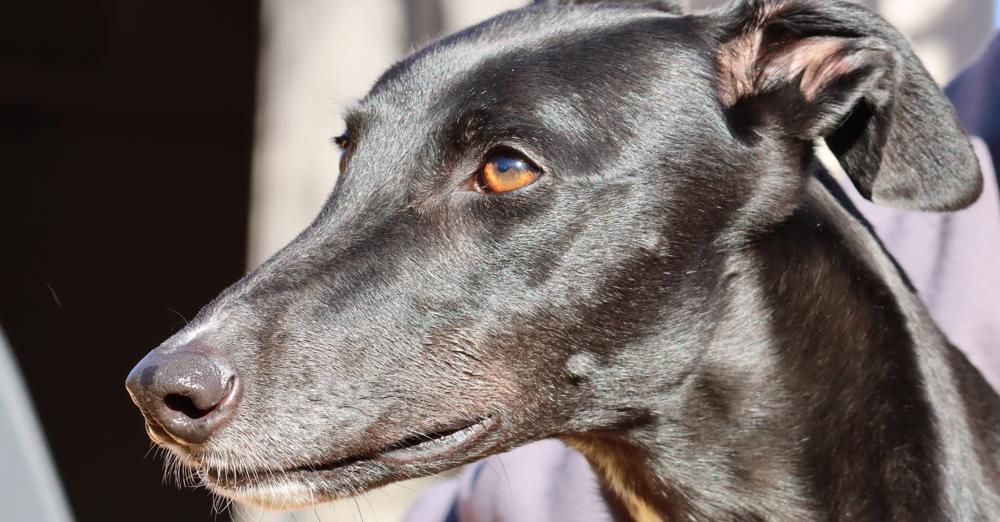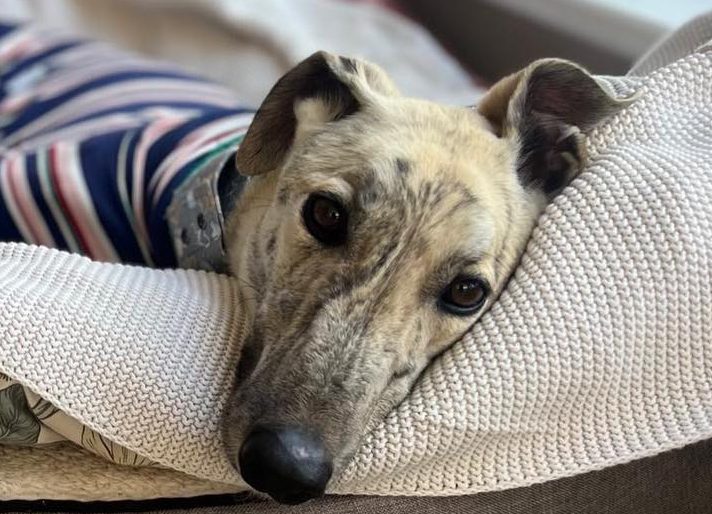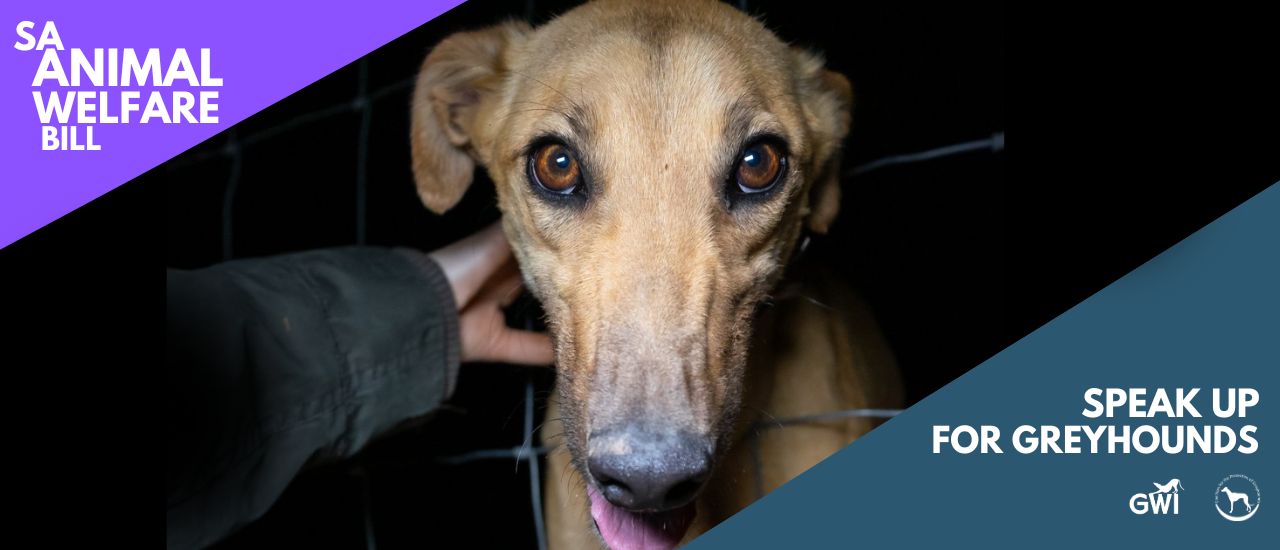Submissions now closed
 Thank you to everyone who had their say on South Australia’s new Animal Welfare Act. You have helped to shape the laws that will protect greyhounds and other animals in South Australia.
Thank you to everyone who had their say on South Australia’s new Animal Welfare Act. You have helped to shape the laws that will protect greyhounds and other animals in South Australia.
We will keep you up to date with progress on the draft Bill and when the new legislation is coming into force.
While there are so many animal welfare issues with greyhound racing, the use of surgical artificial insemination is one of the most cruel and unnecessary.
CPG believes this is an important opportunity to prohibit this procedure in South Australia as the recent report into the SA racing industry recommended an immediate ban.
If your time is limited, we would really appreciate you providing your feedback on this question. A ban in South Australia would mean that other states would follow and this unethical procedure would end in Australia.
Please respond ‘Strongly Disagree’ to Question 12 and add the comments in bold at Question 15.
About the survey
You can complete the survey at the YourSAy website. The first section in the survey asks for some contact information. The following sections allow you to rate your approval on a number of areas using a scale ranging from Strongly Disagree to Strongly Agree.
At the end of each section you can add any comments you may have. We have provided comments against some of the sections in the guidelines below but please use your own words wherever possible.
The SA Government has provided a frequently asked questions section and Explanatory Guide.
Please contact us at [email protected] if you have any questions on completing the survey.
Complete the survey
Questions 1 – 5: Tell us about you
These questions ask for your personal information including name, location, age etc.
Note: If you respond ‘yes’ to “Do you have a professional involvement with animals” an additional question is displayed. This means the survey numbers below won’t exactly match up.
Part 1 – Preliminary
Find more information in the explanatory guide and page 4 of the draft Bill.
Question 6: Do you think the definition of animal is appropriate?
Strongly disagree
Question 7: Do you think the definition of ‘scientific purposes’ is appropriate?
Agree
Question 8: Do you think the principles and objects are appropriate?
Disagree
Question 9: Part 1 – you can add any comments to support your responses here:
Definition of animal, question 6
The definition of animal includes cephalopods only where they are “supplied, kept or used for scientific purposes”. This essentially excludes cephalopods kept for the food industry and those in the wild from protections under the Act. Many studies have shown that cephalopods are highly intelligent. Excluding all cephalopods from the Act is inconsistent with the first principle of the Act (section 4); ie Animals are recognised as living beings that can feel, perceive, and experience positive and negative states.
Principles and objects, question 8
The addition of specific objects to the Act is welcome. However, this section must be strengthened by the addition of the object “to strengthen powers to identify and investigate those who harm or ill treat animals”.
Definition of ‘harm’
The current definition of harm does not address the five freedoms of animal welfare. Specifically, it is now accepted that preventing animals from expressing their natural behaviours produces irreversible psychological damage. The definition of harm therefore must include provision for harm that impairs or damages the psychological well-being of the animal.
The definition of harm must also include a provision that recognises harm done to greyhounds and horses by doping. Currently, the South Australian animal welfare regulatory framework does not provide any legal consequences for doping which causes harm. The Greyhound Australasia Rules are totally inadequate and do not specify penalties for offences. In most cases, suspensions from racing are fully suspended, effectively allowing those in the greyhound racing industry to get away with causing harm to greyhounds. This is an area that must be included in the Animal Welfare Bill in line with the other offence provisions.
The recent review of the SA greyhound racing industry found that Greyhound Racing South Australia Animal Welfare Policy 2021 does not meet community standards. Dogs are kept isolated in kennels and are not provided with opportunities to express their natural behaviours. There is little recognition of the importance of socialisation and breeding and training methods result in prey-driven dogs which are difficult to rehome. A Code of Practice for the Welfare of Greyhounds must be developed by the SA Government in accordance with the SA Animal Welfare Act and enforced.
Definition of ‘serious harm’
Part (b) of the current definition of “serious harm” is too subjective and does not prevent a person from arbitrarily making the decision that an animal has to be put down, because not doing so is cruel. It also does not specify that euthanasia must be done humanely. In fact the use of the word “destroyed” may have perverse consequences in that a person may use a cruel way to destroy the animal. Therefore, the legislative framework must include criteria that must be met, and evidence provided, that a suitably qualified person, such as a veterinarian made the decision and that the method of euthanasia was humane. Given the animals have no voice it is important that there is mandatory accountability and traceability for such decisions.
Part 2 – Animal Welfare Offences
Find more information in the explanatory guide and page 5 of the draft Bill.
Question 10: Do you think the duty of care provision is appropriate?
Agree
Question 11: Do you think the penalties for ill treatment offences are appropriate?
Disagree
Question 12: Do you think the ability to prohibit items or activities in the future is appropriate?
Strongly disagree
Question 13: Do you agree with the inclusion of mandatory reporting for the greyhound industry?
Strongly agree
Question 14: Do you think that the exemptions for fishing activities will enable normal practices to continue?
Agree
Question 15: Part 2 – you can add any comments to support your responses here
Duty of care provision, question 10
While the duty of care requirements are an important addition to the Act, there are serious concerns that these will not apply to the greyhound racing industry. The recent review of the SA greyhound racing industry found that Greyhound Racing South Australia Animal Welfare Policy 2021 does not meet community standards. Paragraph 5(2) of the draft Act specifies that the regulations “may prescribe specific care requirements for particular animals, particular classes of animals or animals in particular circumstances and, in such a case, breach of the prescribed care requirements will be taken to constitute an offence against this section.” The South Australian Government now has an opportunity to demonstrate its commitment to greyhound welfare by specifying in the regulations specific care requirements for greyhounds.
Penalties for ill treatment offences, question 11
To ensure penalties are having a deterrent effect, the relevant government agency must collect information about how the penalties specified in sections 5 and 6 are applied. Additionally, two years after the release of the Act, penalties should be reviewed and revised as required.
Prohibit items or activities in the future, question 12
The Act must be amended to:
1. immediately prohibit “surgical artificial insemination on a dog” . This will align the SA legislation with the Australia’s veterinarian peak body, the Australian Veterinary Association (AVA) which states that: “Surgical artificial insemination (AI) must not be performed in dogs. Welfare considerations indicate that only non-surgical artificial insemination may be performed. All states and territories in Australia should adopt the prohibition of surgical AI in dogs, in their respective Animal Welfare Acts.”
Surgical artificial insemination is a cruel and unnecessary procedure which is banned in a number of countries overseas and opposed by all veterinary and animal welfare bodies. The SA Greyhound Racing Industry recognised this in the recent “Independent Inquiry into the Governance of the Greyhound Racing Industry in South Australia” stating that Greyhound Racing SA should immediately ban the use of Surgical Artificial Insemination in the South Australian greyhound industry.
2. Prohibit the euthanasia of dogs that have treatable injuries resulting from a race or trial event by:
a. Amending section 7(5) of the Bill to classify the euthanasia of a dog with a treatable injury incurred from a race, trial or exhibition as a ‘prohibited procedure’; or
b. Amending Part 2 of the Animal Welfare Regulations to classify the euthanasia of a dog that has suffered an injury incurred from a race or exhibition as a ‘restricted procedure’ that can only be performed by a veterinary practitioner for the purpose of providing relief from a terminal disease, illness or injury.
Part 3 – Advisory committees, etc
Find more information in the explanatory guide and page 11 of the draft Bill.
Question 16: Do you think the skills based composition of AWAC is appropriate?
Agree
Question 17: you can add any comments to support your responses here
Part 4 – Licences, permits and registered activities
Find more information in the explanatory guide and page 13 of the draft Bill.
Question 18: Do you think the separation of licences is appropriate?
Agree
Question 19: Do you think it is appropriate to have a nominated person for a licence?
Strongly agree
Question 20: Do you think the ability to create permits is appropriate?
Agree
Question 21: Do you think it is appropriate to have registered activities/entities?
Strongly agree
Question 22: Do you agree that animal ethics committees should be registered and require a nominated person?
Agree
Question 23: Part 4 – you can add any comments to support your responses here
GRSA licensing, registration and permits are not designed to ensure that only people with the appropriate animal welfare awareness, skills and background are permitted to register as greyhound racing participants. This lack of animal welfare focus also applies to specific areas including breeding, raising, housing, training, socialisation, injury management, and preparation for rehoming.
The SA Animal Welfare legislative framework including a Code of Practice for Greyhound Welfare must rectify this failure to protect greyhounds in the racing industry. The legislation and Code of Practice must ensure that only those with the animal welfare skills and ethical standards demanded by the community are permitted to participate in SA greyhound racing.
Separation of licenses, question 18
A Code of Practice for the Welfare of Greyhounds must be developed by the SA Government in accordance with the SA Animal Welfare Act and enforced. The Code of Practice must include provisions for greyhounds that are donated to scientific research.
Animal ethics committees, question 22
Every registered animal ethics committee must prepare and publish an annual report showing how many animals, and which species, it approved for use in research and teaching.

You're half way through the survey.
Heartfelt thanks from CPG and Gracie
Part 5 – Enforcement
Find more information in the explanatory guide and page 21 of the draft Bill.
Question 24: Do you think that the updated powers for authorised officers are appropriate
Agree
Question 25: Do you think the definition of ‘reasonable notice’ for routine inspections is appropriate?
Strongly disagree
Question 26: Do you think that the ability to issue notices (animal welfare notice and notice to comply) is appropriate?
Agree
Question 27: Do you think the inclusion of enforceable undertakings is appropriate?
Agree
Question 28: Do you think separating the seizure provisions for animals and items is appropriate?
Agree
Question 29: Do you think the ability to deal with seized animals is appropriate?
Disagree
Question 30: Do you think the ability to seek an interim order is appropriate?
Agree
Question 31: Do you think the ability to issue an order relating to costs is appropriate?
Agree
Question 32: you can add any comments to support your responses here
Definition of ‘reasonable notice’, question 25
According to the draft Act, the only circumstance under which an inspection can be conducted is if there is a reasonable suspicion of non-compliance. Authorised officers should have the power to conduct unannounced inspections without cause to ensure there is an element of unpredictability. Inspection programs that routinely include some unannounced inspections are known to have higher deterrent effect and are a more effective strategy to prevent ill treatment of animals.
Dealing with seized animals, question 29
This section gives the Minister the power to sell an animal seized under any part of this Act and specifies that the Minister must pay the owner of the animal the difference between the proceeds of the sale and the cost to the Minister.
This means that the Minister could be in the position of acting as a de facto sales agent for a person who has breached legal requirements. Additionally the sum of money could be substantial depending on the number of animals involved.
Part 6 – Reviews
Find more information in the explanatory guide and page 33 of the draft Bill.
Question 33: Do you think the system of reviews of decisions is appropriate?
Agree
Question 34: you can add any comments to support your responses here
Part 7 – Animal Welfare Fund
Find more information in the explanatory guide and page 34 of the draft Bill.
Question 35: Do you agree with the introduction of an animal welfare fund?
Strongly agree
Question 36: you can add any comments to support your responses here
The point of consumption tax on South Australian’s betting losses currently given to the South Australian racing industry should be directed to the Animal Welfare Fund.
Part 8 – Miscellaneous
Find more information in the explanatory guide and page 35 of the draft Bill.
Question 37: Do you think it is appropriate to register interstate orders and enforce them in SA?
Agree
Question 38: Do you think it is appropriate for the Minister to be able to grant exemptions?
Strongly disagree
Question 39: you can add any comments to support your responses here
Exemptions by Minister
The Minister should be able to grant an exemption on the Minister’s own initiative but only if a full statement of reasons for the exemption is published within 14 days of granting the exemption.
The Minister should not be able to grant or declare an exemption following an application to the Minister.
Part 8 -Schedule 1
Find more information in the explanatory guide and page 41 of the draft Bill.
Question 40: Do you think it is appropriate to amend the Sentencing Act 2017 so that the Animal Welfare Act orders could be available for offences involving animals?
Strongly agree
Question 41: you can add any comments to support your responses here
Question 42: Please provide any other comments you may have
Greyhound Racing South Australia participants who make their dogs suffer do not face the same consequences that other South Australians would under the animal welfare laws. Those who cause harm or severe harm to greyhounds are prosecuted under the greyhound racing rules, which contain significantly lower penalties and no custodial sentences. This is a significant failure of the system, as it is clear that greyhounds continue to be live baited and suffer unnecessary pain and horrendous deaths at the hands of persons registered to participate in the South Australian greyhound racing industry.
This Bill provides an opportunity to correct this parallel system and ensure that greyhound racing industry participants who harm their dogs face the same consequences as every other South Australian. As a consequential amendment, the local rules of greyhound racing should be amended to require any person registered with GRSA who causes harm or severe harm to a greyhound (or to an animal used in live baiting) to be:
(1) referred to the relevant body for investigation and possible prosecution under the South Australian animal welfare laws,
(2) suspended from any further participation in greyhound racing while the investigation and prosecution is in progress, and
(3) banned for life from any involvement in greyhound racing if convicted.
Question 43: If you would like to receive updates on the Animal Welfare Act from the Department for Environment and Water, please provide your email address:

